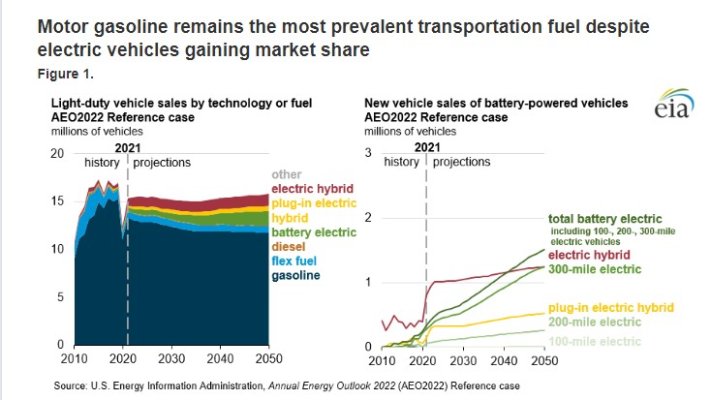This site showing a chart of plug-ins (EVs and plug-in hybrids) suggests a rapid growth phase. Not "millions" today, but soon if we are to believe all the car companies vowing half or all electric by 2030.
https://www.energy.gov/energysaver/...nited,from 308,000 in 2020 to 608,000 in 2021.
And Tesla IS selling them as fast as they can make them - as are most other EV producers. This suggests rapid growth - much faster than the growth of electrical production when you consider that coal and older nukes are being taken off line regularly now. These plants are only being replaced by wind/solar AFAIK. Germany has learned the hard way that you can't fool mother nature.

They were very successful at replacing old technology with renewables - but they found out that wind and solar are not reliable sources.
At this point, we are under producing electricity or else there wouldn't be official warnings of black outs coming. It would appear the only thing "saving us" from longer, deeper electrical shortages is that EV companies can still only build them so fast - it's not lack of demand, apparently.
We are potentially creating the perfect storm of rapidly increasing demand vs decreasing (reliable) supply. Not a good situation to be in. YMMV



